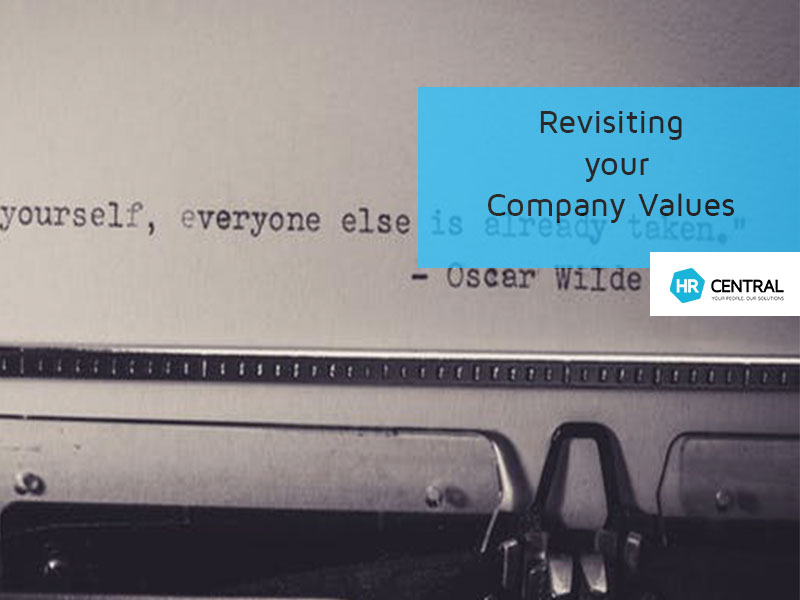Values. Ah, yes….. In our recent blog we suggested that EOFY was a great time to conduct an internal HR review within your own business. Whilst you’re in a contemplative mood it’s also worth revisiting your organisation’s core values to see how they are standing up. Do they resonate with your employees? Do they accurately reflect the way you engage with customers and treat each other at work?
Perhaps your business has never got around to articulating its values. You might be thinking ‘It’s fairly obvious what we stand for’ why do we need to formalise them or write them down?
What are core values and what purpose do they serve?
Core values are the fundamental reasons you are in business. They are solid and unchanging and they are a unique snapshot of what makes your company tick. They clarify what your business sees as important, serve as a ‘guiding light’ for how you make decisions, and provide instruction for your employees’ day to day behaviour. Done well they can inspire greater customer loyalty, better employee engagement and productivity.
How can I make our values meaningful?
- Make them relevant
Recently I worked with a team in a large government department and when I asked them to describe what the organisational values meant to them, one woman described them as a fridge magnet – that is, they were written down, visible to everyone when they made a cuppa but didn’t really mean much!
Values are meaningless when they are ‘imposed’ on an organisation without any reflection. When employees feel that the values of the business are hollow or do not reflect what is really going on it is easy for them to become cynical and disengaged.
Engaging your employees in a discussion of what they consider the business’ core values to be helps them take ownership. Ask them what they value and what shared values their team have. You may be surprised to hear them articulate an unspoken value which is implicitly agreed and understood. HR Central can help you in developing core values that are meaningful and resonate with employees.
- Make them distinctive
Values should reflect your business’ unique culture. Invest the time in thinking about what distinguishes your business from your competitors. Many businesses rush into creating what I refer to as ‘generic’ values – popular ones include integrity (shouldn’t that be a given?), collaboration (ditto), customer focused (well I would hope so) and respect (a fine value but what do we really mean by respect?)
For a more unique take on values check out this example from a U.S. software provider:
We check Ego
We check ego at the door. Humility and gratitude help us work collaboratively, serve others and accomplish more.
Doesn’t that tell you more about the way they operate than a single generic word?
- Live and breathe the values
It is not enough to write down your values, have them printed on posters and stuck on the walls. To really take hold, values need to be evident in all aspects of working life – from the people you hire, through the orientation process, how business decisions are made, how customers are dealt with and how employees work with one another. Values should be ‘lived and breathed’.
Once you have agreed on a set of values plan how you will implement them in every aspect of your business.
| FIVE WAYS TO MAKE VALUES LIVE
1. Refer to your values on your company website, in other publications and in correspondence to your customers. Recently I noticed a team of tradesmen working on a building site who all had one of the company’s values printed on their uniform. That’s one way to get the message across! 2. Talk about the values as a team – choose a value and discuss it at your regular team meeting. Ask one of the team to define what it means to them and give an example of how they have seen that value in action recently. 3. Plan work social events that reflect your values. If your value is around ongoing education for example, you might employ an inspiring guest speaker to come talk at your annual work dinner. 4. Acknowledge behaviour that models the values and act on behaviour that doesn’t. 5. Lead and manage in accordance with the values. If you don’t practice what you preach when leading a team, it is very hard to expect your team to do so. |
Let us help you set your values, or show you how to incorporate them in to your business way of life. Get in touch
1300 717 721

